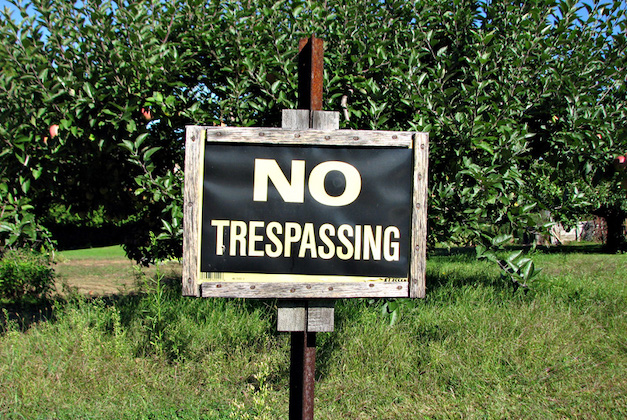Trespassing law: how should you deal with trespassers?
The various lockdowns over the past year seem to have made trespassing more of a problem than ever. David Frost offers some useful advice.

Trespassing law
Q: I have a question about trespassing law. We were out pigeon shooting when we were confronted by three trespassers. They refused to leave when asked and were a right nuisance. We videoed them and called the police, who said trespass was a civil matter and there was nothing to be done. Surely that can’t be right?
A: No it isn’t. What you have described is aggravated trespass which, along with trespass with a firearm, is a criminal not civil matter. Aggravated trespass occurs when someone trespasses with the intention of disrupting a lawful activity or intimidating someone to prevent them carrying out a lawful activity. Go back to the police, present them with your video evidence and ask them to take proper action.
- Trespassing is currently a civil offence. This means that the police are unable to intervene in such situations. Furthermore if landowners use force to remove intruders they can be charged with committing a number of offences.
- The Tory manifesto in 2019 included making trespassing on private land a criminal offence. However at the time of writing the law had not yet changed.
- A landowner can sue for trespass in the civil courts. However, substantial damages are only likely when there has been physical damage or the landowner has been deprived of the use of the land.
- National Gamekeepers Organisation (NGO) chairman Liam Bell commented to Shooting UK: ‘We know first-hand from our members the problems that occur from trespassers on private land. We know it’s a huge issue in rural areas and not just a problem for the shooting community.”
- For more on trespassing law, read the table of trespassing offences covered by the Criminal Justice and Public Order Act 1994 here.
- On private land it is a criminal offence (aggravated trespass) to obstruct or disrupt anyone pursuing a lawful activity. It is also an offence to intimidate someone so as to deter them from taking part in that activity.
- In Scotland, trespassing law is more complex and specialist legal advice should be sought
- Demonstrators do not have the right to protest on a public footpath, which simply exists to allow passage.








